The Baby Birds
What you should know about wild baby birds
What you should know about wild baby birds
I have found a baby bird, can you tell me how to take care of it?
The fact is, they're probably not orphans. Most birds are ready to leave the nest before they can fly or take care of themselves. This is a normal, routine part of a wild bird's life! Their parents bring them food and protect them (for weeks!) before they're on their
own. Sometimes you will find a wild baby bird, looking lost and abandoned. Naturally, you want to help... but the best help is actually not to help (aside from keeping your pets away from the baby). The most important thing to understand is that the bird's parents are very much taking care of it, and they know better
what to do for their baby than you do. So don't adopt it. It's not an orphan. You can help though. The main danger is from cats and squirrels. Pick up the bird in your hands or a towel. Hold it firmly enough that it can't injure itself by struggling. Put it into the nearest thick bush or tree, where it can scramble
into the safety of foliage.
The parents will bring it food. Don't be too concerned about which bush or tree the nest was in. Even if you have to go next door or across the street, the parents will easily find the baby from its cries. It's good to give a helping hand, and then let nature be. If you find a baby, leave it be. If you think it
needs help, call a qualified Wildlife Rehabilitator!
What if I already touched the birds, the mother won't come back, will she?
People often believe this to be true and therefore think they need to keep the babies. This is simply NOT TRUE and is just an old wives tale. Birds in general have a very poor sense of smell (vultures are one exception) and will not mind the fact that you have handled them (but will be bothered by your presence by the
babies).
If you do find a REAL orphan or injured baby bird, please do the following:
1.Get it to a licensed wildlife rehabilitator AS SOON AS POSSIBLE; the longer the delay, the less chance it has of surviving
2.Keep the baby bird WARM and in a quiet, dark place until you can bring it in (a small cardboard box works well)
3.DO NOT give the baby bird any liquids (they get all they need from their food and very often will inhale any liquid).
Locate a wildlife rehabilitator in your area by visiting this very informative site.
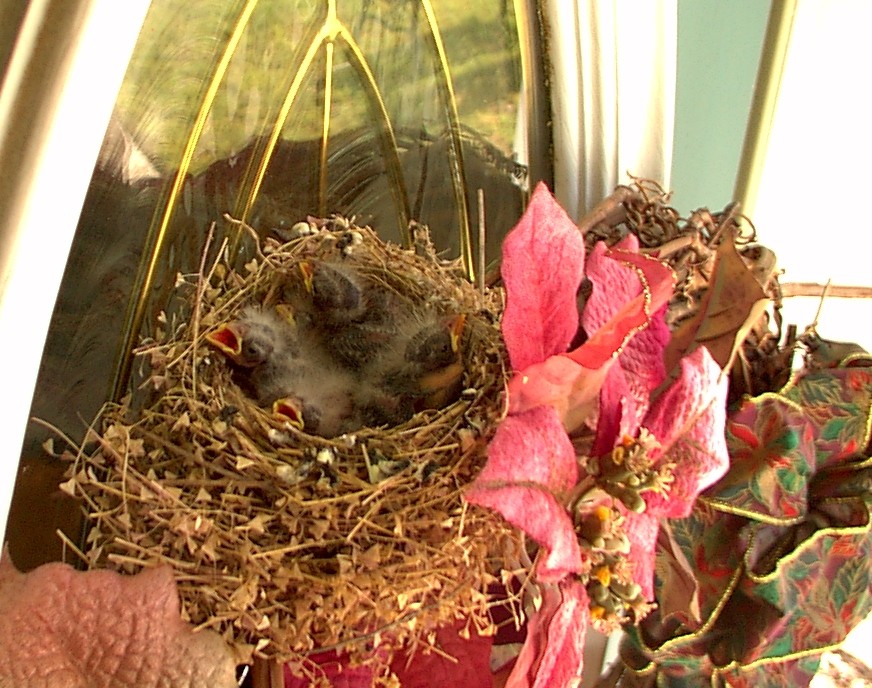
I went out to take this wreath off the
door and noticed a nest being built.
I decided to see what happens.
A short time latter we found some eggs.
Then to our surprise one day we found
these little creatures looking at us.
![]()
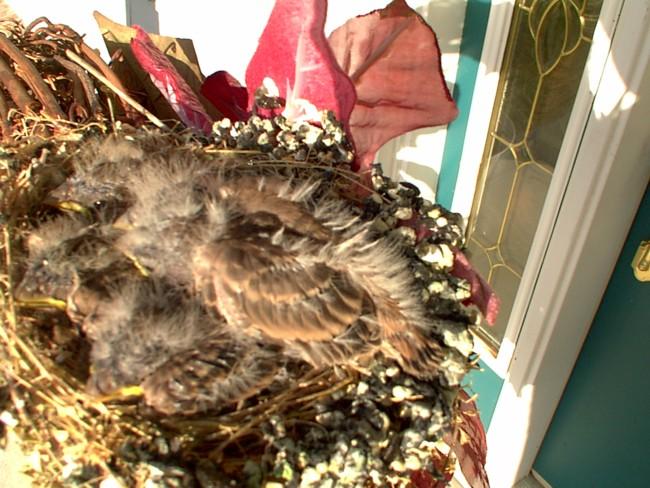
May 10-2003
My oh My look how they have grown.
We have become pretty attached to these
little things. Last night we had a Tornado
warning and Carol made us bring them inside.
She even wanted to take them to the basement
at her mother and fathers.
All is well and the birdies are fine.
![]()
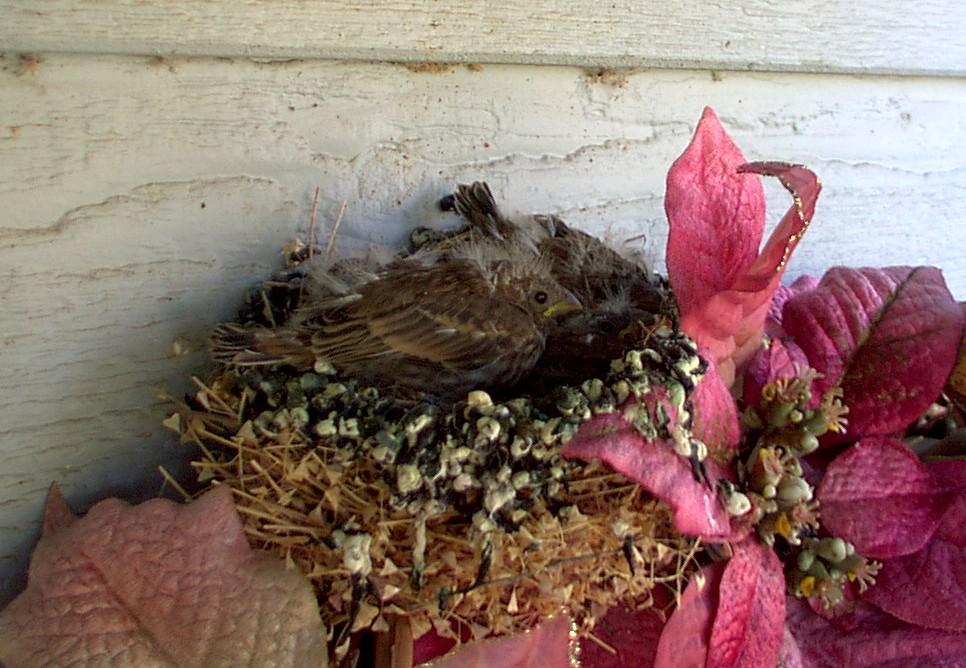
May 12-2003
This is just one of the babies,
it is taking up most of the nest and all
the other babies are in there also.
![]()
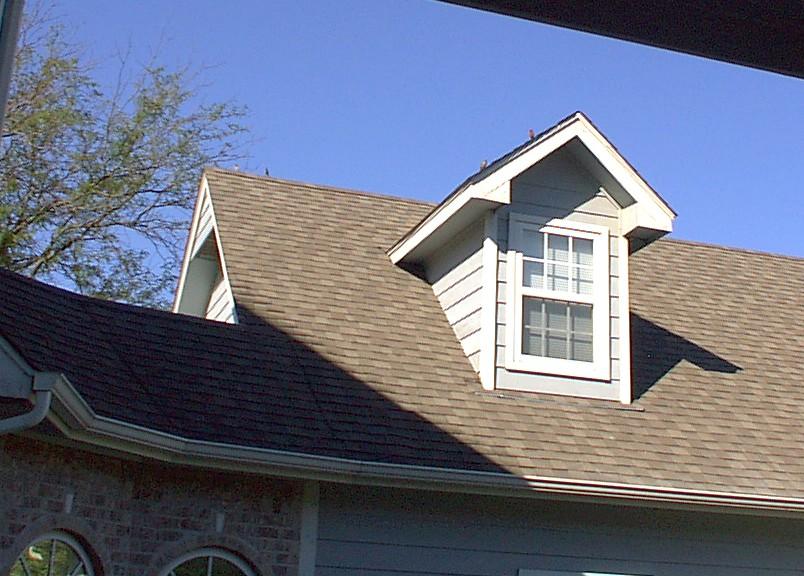
It is hard to tell from the picture,
(look on top of the dormer)
but mommy and daddy are never very far away.
They let you know they are unhappy when you get around the nest.
![]()
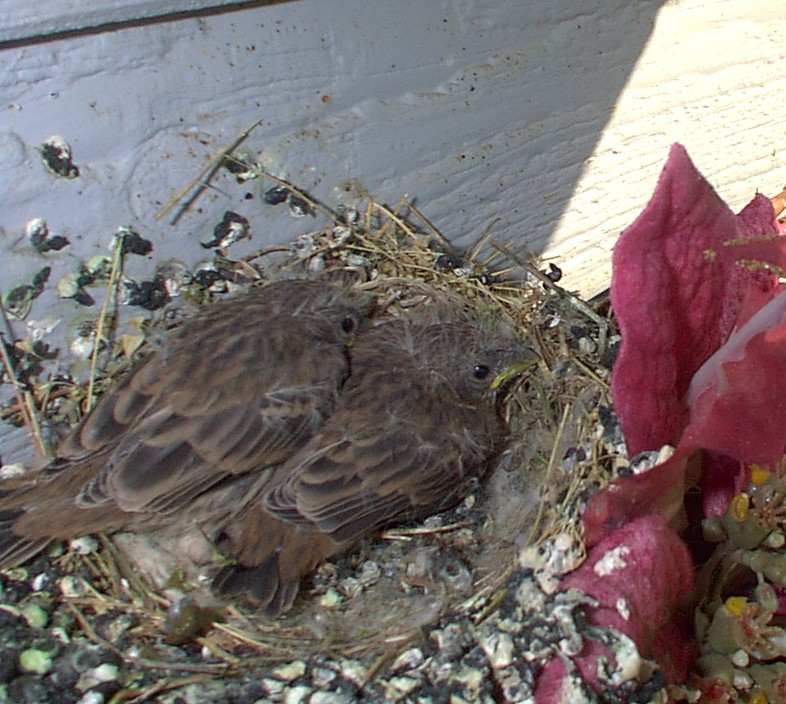
May 14-2003
I walked out the door and two little
birdies flew away. These two were
a little to timid to fly, we thought.
![]()
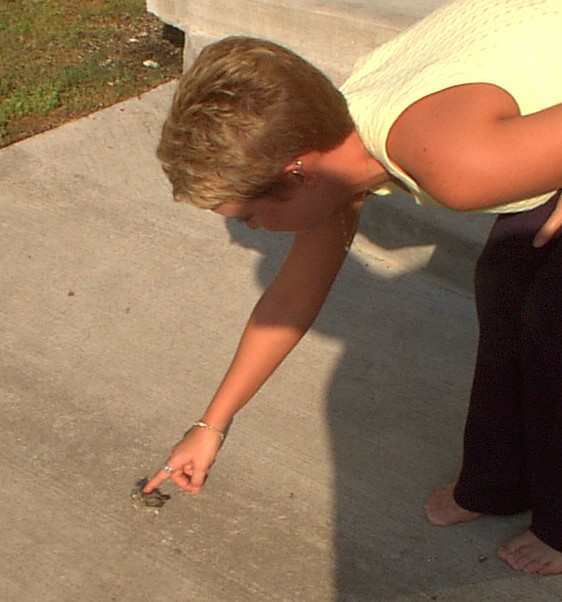
May 14-2003
They both flew away, well this little
guy didn't fly very far.
Christina didn't listen very well about
leaving the baby birds alone.
she just had to pet it.
![]()
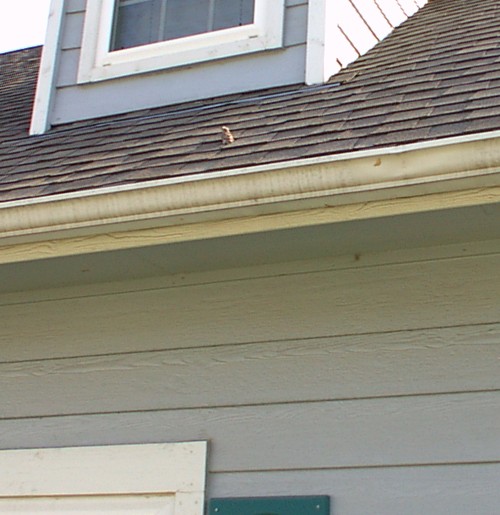
May 14-2003
They both flew away, we
found one stuck up here on the roof.
![]()
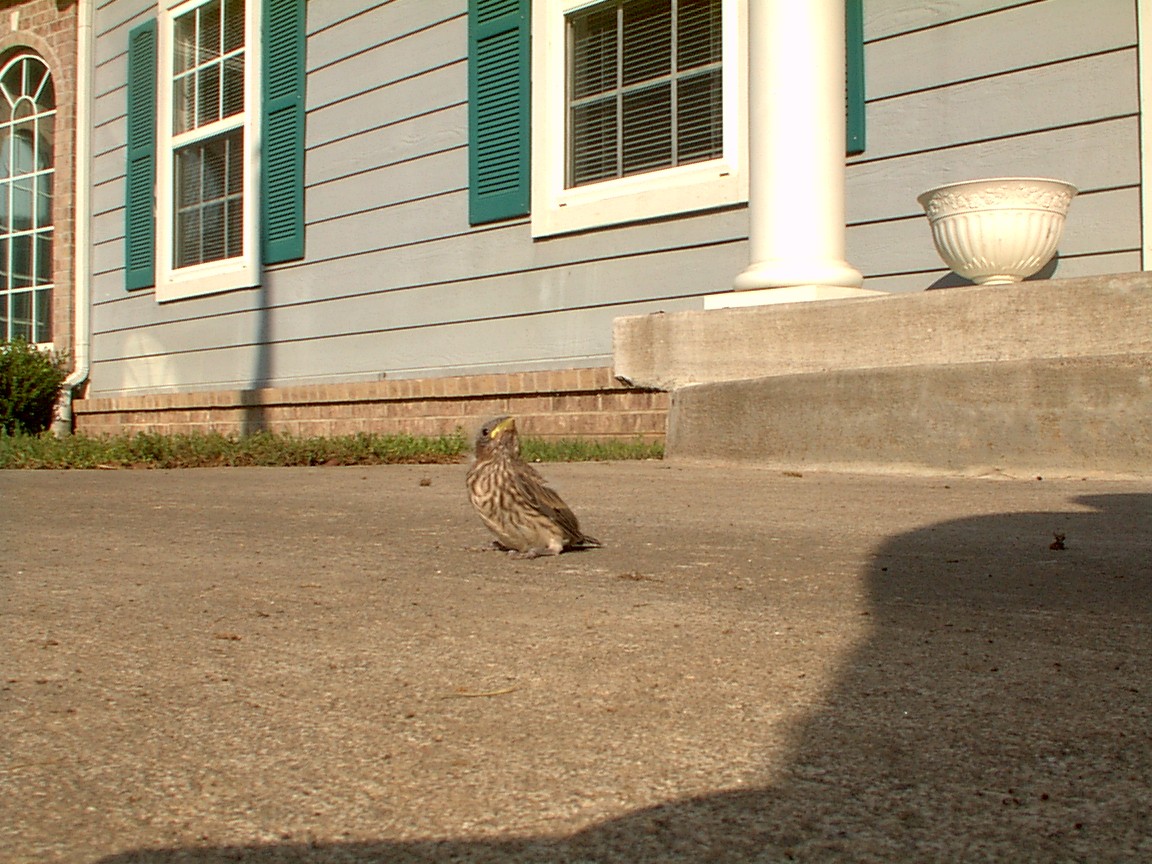
May 14-2003
Now What?
![]()
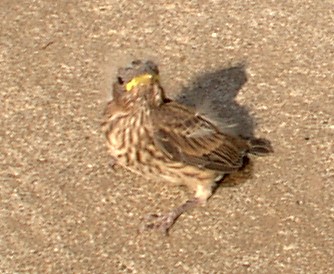
May 14-2003
Is this not the cutest thing you have
ever seen.
![]()
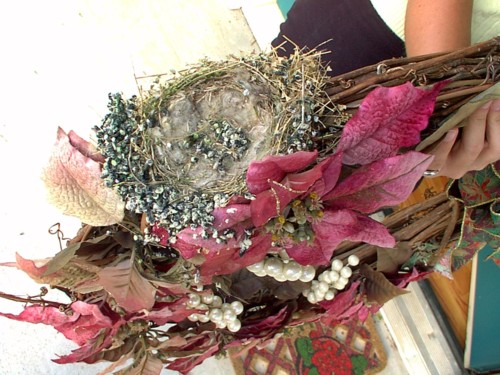
May 14-2003
Every mothers nightmare
(birds and Human alike)
![]()